We eat unconsciously without putting a lot of thought as to what we are putting into our bodies. How do we stop letting food dictate what we eat and instead make more conscious decisions about food?
Unconscious eating, also known as mindless or emotional eating, occurs for various psychological, physiological, and environmental reasons:
- Emotional Triggers: Many people turn to food to cope with their emotions. Stress, anxiety, sadness, or boredom can lead to a desire for comfort, and eating can provide a temporary distraction from these feelings. Food often acts as a source of emotional relief, and individuals may unconsciously eat to soothe their emotional distress.
- Food Addiction: Certain highly processed and palatable foods can trigger addictive-like responses in the brain, leading to cravings and a loss of control over eating. It can contribute to unconscious eating patterns, as individuals may feel compelled to consume these foods even when not hungry.3. Social Influence: Social gatherings, celebrations, and peer pressure can encourage unconscious eating. In social situations, people may eat more or different foods than they usually would due to the desire to fit in or conform to the eating habits of those around them.3. Habits and Routines: People develop habitual eating patterns over time. For example, snacking while watching TV or consuming a sugary treat after dinner can become ingrained routines that lead to unconscious eating. These habits often persist because they are associated with certain activities or times of day.4. Environment: The food-rich environment we live in can trigger unconscious eating. The presence of tempting and easily accessible snacks, advertisements, or even the smell of food can stimulate the desire to eat, even when you’re not hungry.5. Multitasking: People often eat while engaged in other activities, such as working, studying, or driving, which can lead to unconscious eating. When the focus is on the primary task, eating without paying attention to the quantity or quality of the food being consumed is easy.
How to Create Mindful Eating Habits
Creating mindful eating habits is a gradual process that involves developing awareness, changing behaviors, and fostering a healthier relationship with food. Here are some steps you can take today to start building mindful eating habits:
- Start with a Plan: Set clear intentions for your meals and snacks. Decide what you’ll eat and when, and avoid impulsive or mindless snacking.
- Chew Thoroughly: Take the time to chew your food slowly and thoroughly. Chewing helps digestion and allows your body to register fullness more accurately.3. Pay Attention to Hunger Cues: Before eating, assess your hunger level. Are you truly hungry? Or are you eating out of habit? Or out of emotional reasons? Eat when you’re physically hungry, not just because it’s a mealtime.4. Eat Without Distractions: When you eat, minimize distractions like TV, smartphones, or work. Focus solely on your meal and the sensory experience of eating.5. Keep a Food Journal: Consider keeping a food diary to track your eating habits and emotional triggers. A food diary can help you identify patterns and make more conscious choices.6. Use Smaller Plates: Serve your meals on smaller plates and use smaller utensils. Control portion sizes help to avoid overeating.7. Keep a Food Journal: Consider keeping a food diary to track your eating habits and emotional triggers. A food diary can help you identify patterns and make more conscious choices.8. Weigh your food: Another option is putting your plate on a scale and sticking to the amount that triggers fullness.9. Seek Support: Share your mindful eating journey with friends or family members who can offer encouragement and accountability.10. Seek help from a registered dietitian or therapist: if emotional eating is a concern. Many support groups can help you to stay on course.
Bad Eating Cycle’s Can Be Broken
Remember that developing mindful eating habits is a gradual process. You will encounter challenges along the way. Be patient with yourself and approach this journey with self-compassion. Over time, practicing mindfulness with your eating can lead to a healthier and more enjoyable relationship with food.
Connect to Your Mind-Body Through Daily Practices
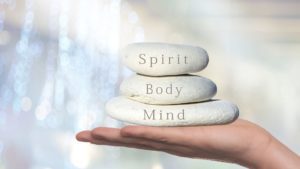 We all have heard of this term, mind-body connection, but what is it and how do we connect to it everyday? Learn more about the Mind-Body Connection through my 3-part video course. You will learn:
We all have heard of this term, mind-body connection, but what is it and how do we connect to it everyday? Learn more about the Mind-Body Connection through my 3-part video course. You will learn:
Lesson 1: Know Your Mind-Body Connection 19:14
Lesson 2: Mind-Body Intuitive Development Exercise 10:55
Lesson 3: Connect Your Mind-Body Meditation 20:13
Cost: $75 – Watch as many times for one year from the date of purchase. Mind-Body Connection.
 About the Writer, Teacher, and Film Maker
About the Writer, Teacher, and Film Maker
Helen Chin Lui is a Certified Reflexologist, Certified Energy Medicine, and Reiki Practitioner. She is the owner of the Healing Place LLC and Healing Place Energy School LLC in Medfield, MA. She specializes in helping adults and children to find long-lasting relief from chronic pain, digestive issues, and heal hormonal imbalances naturally.
Healing Place LLC
 Healing Place LLC specializes in helping people of all ages break the pain cycles of chronic pain, chronic digestive problems and balances hormones naturally. If you would like to learn how Reflexology can support your health, please schedule a FREE consultation on the HealingPlaceMedfield.com website or call (508) 359-6463.Too far to come to Boston? Look for a Certified Reflexologist in your town and state?
Healing Place LLC specializes in helping people of all ages break the pain cycles of chronic pain, chronic digestive problems and balances hormones naturally. If you would like to learn how Reflexology can support your health, please schedule a FREE consultation on the HealingPlaceMedfield.com website or call (508) 359-6463.Too far to come to Boston? Look for a Certified Reflexologist in your town and state?
Healing Place Energy School LLC
 Want to learn how to better care for yourself and your loved one with holistic medicine? Become a member of the HealingPlaceEnergySchool.. We offer courses self-care courses: Energy Medicine, Mindful, Reflexology, Meditations, and Self-Awareness. All courses are taken from the privacy of your home. These are empowering self-care and self-help classes that teach lifelong skills.
Want to learn how to better care for yourself and your loved one with holistic medicine? Become a member of the HealingPlaceEnergySchool.. We offer courses self-care courses: Energy Medicine, Mindful, Reflexology, Meditations, and Self-Awareness. All courses are taken from the privacy of your home. These are empowering self-care and self-help classes that teach lifelong skills.
HealingPlaceEnergySchool Store
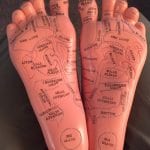 Purchase either a pair of foot or ear reflexology model
Purchase either a pair of foot or ear reflexology model
 Helen Chin Lui’s Personal Empowering and Self-Growth Books
Helen Chin Lui’s Personal Empowering and Self-Growth Books
Get Helen’s Books today and share the knowledge. Know Your Chakras and Foot Reflexology to Promote Relaxation.


 Helen Chin Lui’s Personal Empowering and Self-Growth Books
Helen Chin Lui’s Personal Empowering and Self-Growth Books

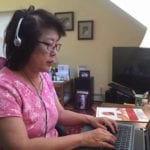
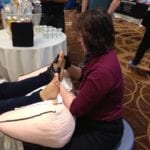



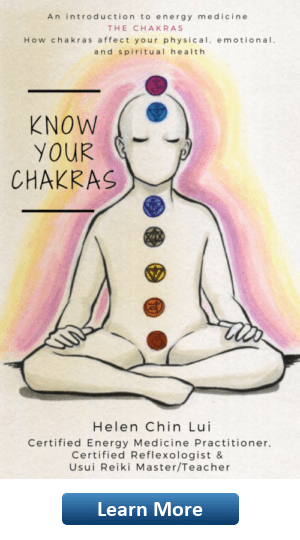
 The Healing Place LLC helps all ages to find relief from chronic pain, chronic digestive problems and balance hormones naturally. We practice COVID19 safety. Don’t forget to check on our online school HealingPlaceEnergySchool.com. Thank you.
The Healing Place LLC helps all ages to find relief from chronic pain, chronic digestive problems and balance hormones naturally. We practice COVID19 safety. Don’t forget to check on our online school HealingPlaceEnergySchool.com. Thank you.
Recent Comments